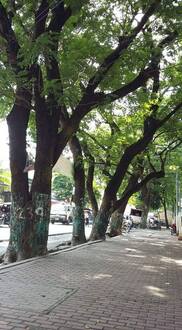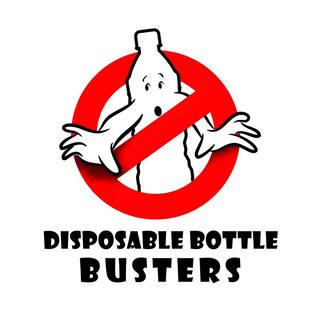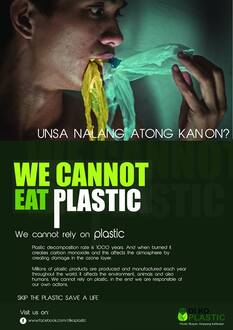-
Reappoint Gina Lopez as DENR SecretaryGina Lopez has been the only DENR secretary that has enforced our environmental laws without fear or hesitation. She has extensively visited and documented the environmental degradation of mine sites, watersheds, coastal areas, and forests, all over the country. She has comprehensively sought, listened and decisively acted on the complaints of affected communities. She is qualified to this position considering her knowledge of environmental issues and her previous experience managing development initiatives such as social enterprises, eco-tourism and the rehabilitation of the Pasig River. To ensure the continued advance for real change in your administration, Gina Lopez is imperative because: a) She can inspire people within the agency and the communities to commit towards a green economy; b) She has a solid history of being able to work with other government agencies local governments, and private sector and civil society groups to implement an integrated area development approach that is crucial to helping the poor; c) She can check and possibly end corruption in the DENR, as she herself has shown that she has zero tolerance for corruption; d) She can effectively communicate the environmental challenges we face, and inspire millions of citizens to address the issues they face at ground level. We realize that as President, you have to make choices and follow the law. But in the case of Gina Lopez, you yourself correctly recognized that powerful economic interests and corrupt politicians have obstructed your resolve to bring change to DENR. We must not allow this betrayal of the country, and the betrayal of our environment to remain unchecked. Mr. President, millions of Filipinos – especially the poor – are relying on your will to make the right decision. It is in this spirit that we, along with many of our fellow Filipino citizens, ask that Gina Lopez be re-appointed as DENR secretary.490 of 500 SignaturesCreated by Reappoint Gina Lopez as DENR Secretary Movement
-
Stop the Release of Balloons during Sinulog 2017For the past years, it has been a common tradition or practice of the devotees of Señor Santo Niño to write their letters or wishes to the Holy Child Jesus, tie it to a red balloon and release it to the air, with the mindset that their wishes and letters will reach Señor Santo Niño and will soon be answered. This action is not only a false belief but it also harms the creations that our Almighty Father told us to take care of. The balloons that the devotees release will eventually deflate and end up becoming waste and end up in our oceans where it can possibly harm marine animals.167 of 200 SignaturesCreated by Niña Kattisha Rae Rama
-
STOP CUTTING THE 248 OLD TREES IN FLORIDABLANCA, PAMPANGAThis is important because the trees are a part of our hometown and of our families. Many of us have good memories with these trees. People were not consulted with the tree cutting which was supposed to be done by the LGU before implementing a project.We all know how long it takes for a strong tree to grow. These trees served as our protection against pollution, floods and from the scorching heat of the sun. They have served us well from generation to generation and it is time for us to protect them. As of yesterday, the DENR issued a temporary stop to the cutting of the trees. What we are asking is for a PERMANENT STOP to the cutting of the old trees.640 of 800 SignaturesCreated by Karen Manalansan
-
Ban disposable bottles from school canteensTen reasons why we should ban the sale of disposable plastic bottles in schools: 1. Less Waste. Less than 10% of all plastic waste generated is being recycled. The volume of plastic bottles being generated in school canteens is much too big and not all are being recycled. It doesn't make sense to continue generating this waste. 2. Safer Drinking Water. There is no assurance that water or drinks from disposable bottles are safe to drink. Many bottled water companies do not subscribe to safety standards and water quality is not much better than tap. 3. More expensive than fuel. Bottled water and sugared beverages are much too expensive, especially for students. At most times, bottled water is more expensive that soft drinks and chemical-laden sugared drinks in tetra packs. Water refilling is more allowance-friendly. Students are encouraged to drink more water if they don't have to spend too much to buy it. 4. Better access. While mineral water and bottled beverages can only be sold at school canteens, water refilling stations can be placed strategically all over schools, encouraging students to drink water more. 5. Better health. Water refilling stations provide better access to safe, affordable drinking water. Students drinking more water promote over-all better health for the school community. 6. Water miles. If we are worried about food miles, shouldn't we be also worried more about water miles? Why drink water that came from so far away, water that is bottled months, or even years ago? Transporting these drinks entail a lot of carbon footprint. Be mindful of climate change and the water miles of bottled water. 7. Making the government accountable. Just because we can buy bottled water to drink, it doesn't mean that the government is off the hook in its responsibility to provide safe drinking water for all. Promoting bottled water is allowing the transfer of responsibility to provide clean drinking water from government to the business sector. Water is a right. It should be drinkable from the tap. The government should provide it. 8. Better behavior. Hyper-activity and restlessness among children have been found to be linked to excessive sugar intake. Sugared drinks in disposable bottles are some of the culprits. By eliminating access to such drinks in schools, students can be more sober and calm and thus be in better behavior. 9. Promote healthier options in school canteens. Instead of factory-made drinks, fresh and healthy fruit and herbal drinks should be prepared in schools. 10. Generate more income. More income can be generated if water refilling stations are placed strategically all over schools. Its a win-win situation where the school still gets to earn a income from refilling stations and students get access to safe and cheaper water. Matching schools with local farmers in providing healthy, natural, and organic drinks could also generate local income rather than have the income concentrated only in big companies that bottle water and manufacture chemical and sugar-laden bottled drinks.288 of 300 SignaturesCreated by Shiela R Castillo

-
Plastic Ban in Lapu-Lapu CityTo reduce plastic wastes that are one of the major causes of flooding and pollution. Plastic wastes are not only clogging drainage areas but also the majority of this goes directly to the ocean harming marine animals. Most of the locals as well are still burning plastic wastes which is very harmful for the environment.207 of 300 SignaturesCreated by Mirai Vanessa Macol
-
#StopShippingPlasticWaste**#DidYouKnow** Many products are packaged in ‘recyclable’ plastic material that is not recyclable at all. ‘Recyclable’ plastic waste, usually mixed with a significant share of contaminants, has been shipped for years from rich economies to weaker economies. But often, the recycling of exported plastic waste is a MYTH! Check out this video from Greenpeace Malaysia to know more about the Recycling Myth: https://youtu.be/yw-sZ2Asa8U https://www.greenpeace.org/static/planet4-philippines-stateless/2022/06/b46d0de0-stopshippingplasticwaste-2.png - **The plastic waste trade is a source of ocean pollution.** An estimated 80% of marine debris stems from plastic[1], which includes consumer products and packaging, and domestic waste. A portion of that volume comes from plastic waste that had been shipped for recycling. Researchers estimated that up to 31% of polyethylene (PE) plastic waste exported from Europe is not recycled at all[2], with as much as 24% of the rejected plastic potentially ending up as marine pollution. - **Plastic waste exports drive plastic production.** When countries ship their plastic waste to other countries under the guise of ‘recycling’ - corporations can continue to manufacture plastics[3] with impunity. If countries were forced to deal with their own plastic waste, they might be more wary of producing massive quantities of plastics that will persist in their environments for centuries. - **Plastic waste exports unjustly impacts the environment and communities in the Global South.** Due to pollution crimes[4] such as the illegal trafficking, dumping, and burning of plastic waste, the plastic waste trade often has **severe implications for the health of the environment and the people in destination countries,** causing the toxic pollution of soil, air, and water from waste that they did not create. - **Plastic waste exportation is equivalent to waste colonialism.** By shipping plastic waste, rich countries can enjoy convenience and unlimited consumption while shifting the blame and the responsibility of tackling plastic pollution onto developing countries - most of which are ill-equipped in terms of infrastructure and technology to handle their own domestic plastic waste. The traded plastic waste ‘leaks’ into rivers and the ocean at every stage of the transportation process, even during storage and recycling. - **The plastic waste trade is a false solution. #PlugtheLeak** Strategies to stop plastic litter and microplastics from leaking into the oceans, including increased recycling, will be ineffective if plastic waste continues to be transported to other countries, while plastic production and consumption keep increasing. https://www.greenpeace.org/static/planet4-philippines-stateless/2022/06/f9309fcf-stopshippingplasticwaste-4.png The real solution requires changing the practice of disposing of plastic waste via exports. Shipping companies must stop transporting plastic waste from rich to weaker economies. This safeguards communities in receiving countries from unjust waste trade practices, and protects our environment from plastic pollution. Doing so would better align shipping companies with their sustainability commitments, especially those in line with SDG 14’s targets to reduce marine pollution and protect marine ecosystems. To **#PlugtheLeak** in river and ocean pollution, we have to **#StopShippingPlasticWaste!** https://www.greenpeace.org/static/planet4-philippines-stateless/2022/06/2929d7fe-stopshippingplasticwaste-3.png Companies like Maersk offer excuses for why they will not stop shipping plastic waste[5], yet we know that this shift is possible! From 1 June 2022 onwards, the French shipping company CMA CGM will no longer carry plastic waste on board its ships[6]. Here’s why CMA CGM decided to stop plastic waste trade: https://youtu.be/5XIvRdeVgQo This was after the Shipping Lines Campaign asked the company to rethink their waste trade policy — demonstrating that concerted efforts targeted at shipping companies, like this petition, do work! **Tell the world’s top shipping companies — Maersk (Denmark), Hapag-Lloyd (Germany), MSC (Switzerland), Hamburg Sud (Germany), COSCO (China), Orient Shipping (Jordan), and Dole Ocean Cargo (United States) — to #StopShippingPlasticWaste.** If you are located in Denmark you may also sign Plastic Change's petition calling on Danish company Maersk here: https://plasticchange.dk/maersk/ To know more about waste trade, head over to Break Free from Plastic’s page: https://www.breakfreefromplastic.org/waste-trade/ Petition supported by: https://www.greenpeace.org/static/planet4-philippines-stateless/2023/05/bc066f28-collaborating-organizations-e1683710980592.png **Reading Resources** Follow the progress of the Shipping Lines Campaign here: https://www.ban.org/plastic-waste-transparency-project-hub/shipping-lines-campaign [1] Marine Plastic Pollution - IUCN (Nov 2021) | https://www.iucn.org/resources/issues-briefs/marine-plastic-pollution [2] Recycling of European plastic is a pathway for plastic debris in the ocean - Environment International (Sep 2020) | https://doi.org/10.1016/j.envint.2020.105893 [3] The truth behind trash - Environmental Investigation Agency | https://eia-international.org/wp-content/uploads/EIA-The-Truth-Behind-Trash-FINAL.pdf [4] Pollution Crime - INTERPOL | https://www.interpol.int/en/Crimes/Environmental-crime/Pollution-crime [5] Maersk on why they won’t stop plastic waste trade | https://www.tj-chinafreight.com/maersk-bars-on-cma-cgm-we-oppose-stopping-plastic-waste/ [6] Plastic ban onboard CMA-CGM ships | https://www.cma-cgm.com/news/4064/plastic-ban-onboard-our-ships [7] TRASHED – A Briefing Paper on Plastic Waste Trade in Asia Pacific https://www.breakfreefromplastic.org/wp-content/uploads/2022/06/PlasticWasteTrade_BriefingPaper_Final_min.pdf694 of 800 SignaturesCreated by Greenpeace Philippines






